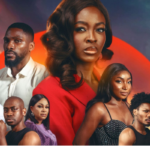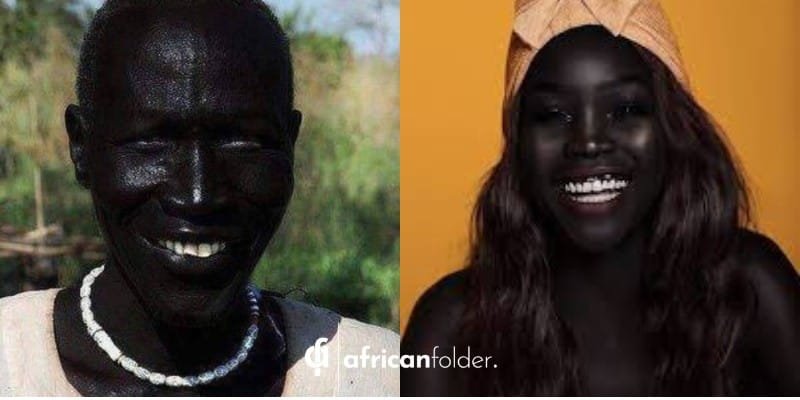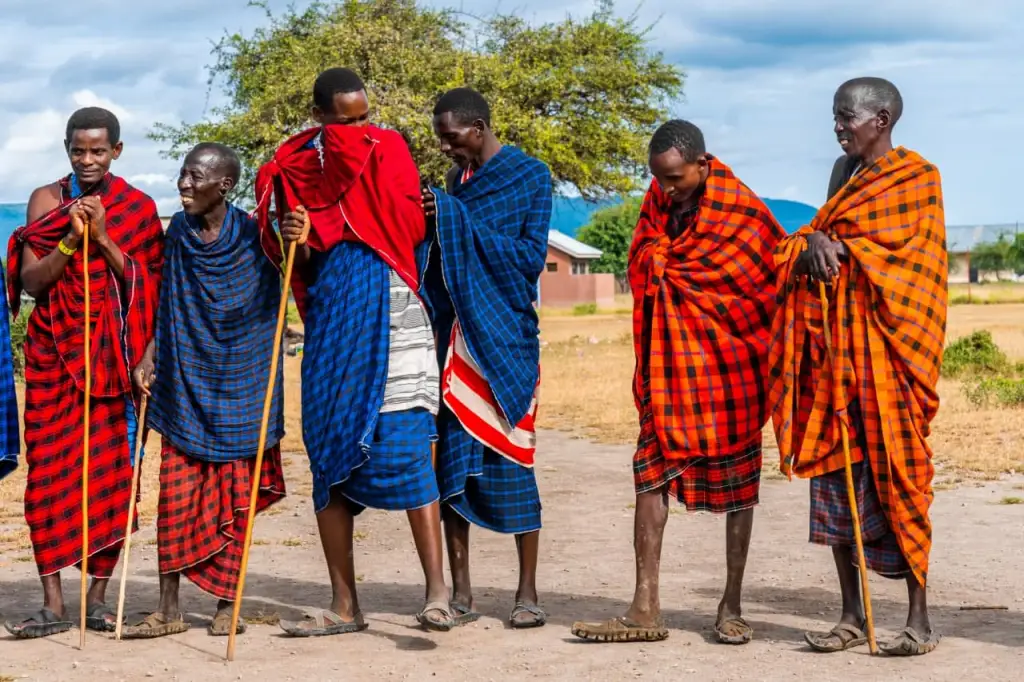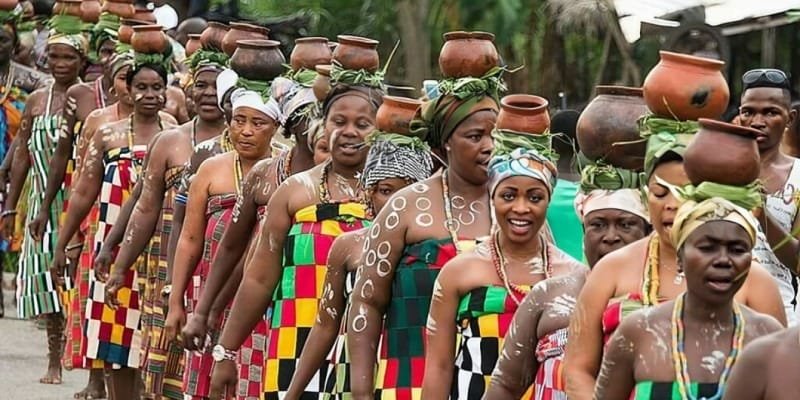The beauty of melanin-rich skin has long been celebrated, yet many aspects of the diversity within dark skin tones remain underappreciated. From the rich, chocolate-like shades to the deepest ebony hues, Black people worldwide boast an incredible range of skin tones. These variations tell stories of ancestry, culture, and heritage. However, curiosity around who holds the title of “the blackest man in the world” has garnered attention across social media and beyond, with many people fascinated by individuals with particularly dark skin.
As we explore this topic, it’s important to note that there’s no official world record for the darkest skin tone. However, the conversations sparked by viral images and high-profile figures who proudly embrace their dark complexion have encouraged a global discussion about the beauty of melanin. In this article, we’ll delve into the lives of individuals who have captured attention for their unique skin tones and explore the broader significance of their stories.
In 2024, the discussion about the blackest person alive is still evolving, with a particular emphasis on men and women of African descent who naturally possess some of the deepest melanin-rich complexions. Read on to discover more about the people who have been discussed as the blackest individuals in the world, the impact of their skin tone on beauty standards, and the cultures that have nurtured this diversity.
Who is the Blackest Man in the World?
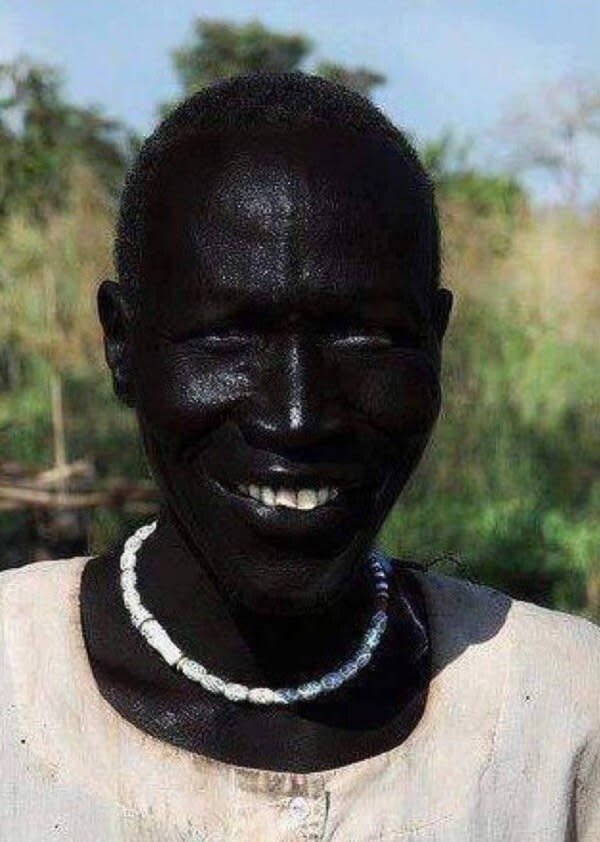
Many believe an unidentified African man to be the blackest man in the world. After a picture of him circulated on social media, he gained viral fame. His incredibly dark skin tone, reminiscent of the deepest shade of dark chocolate, amazed viewers worldwide. While no one knows his name or where the photo originated from, the image reignited global conversations about the range of black skin tones and how beauty standards should evolve to embrace diversity.
This man’s beautiful complexion represents the rich variations found within the African diaspora. His picture serves as a visual reminder that dark skin is not only a product of ancestral heritage but also a celebration of cultural pride. Despite his anonymity, his influence in redefining beauty standards for people with dark skin continues to resonate across different communities, sparking admiration and appreciation for melanin-rich tones.
Who is the Blackest Woman in the World?
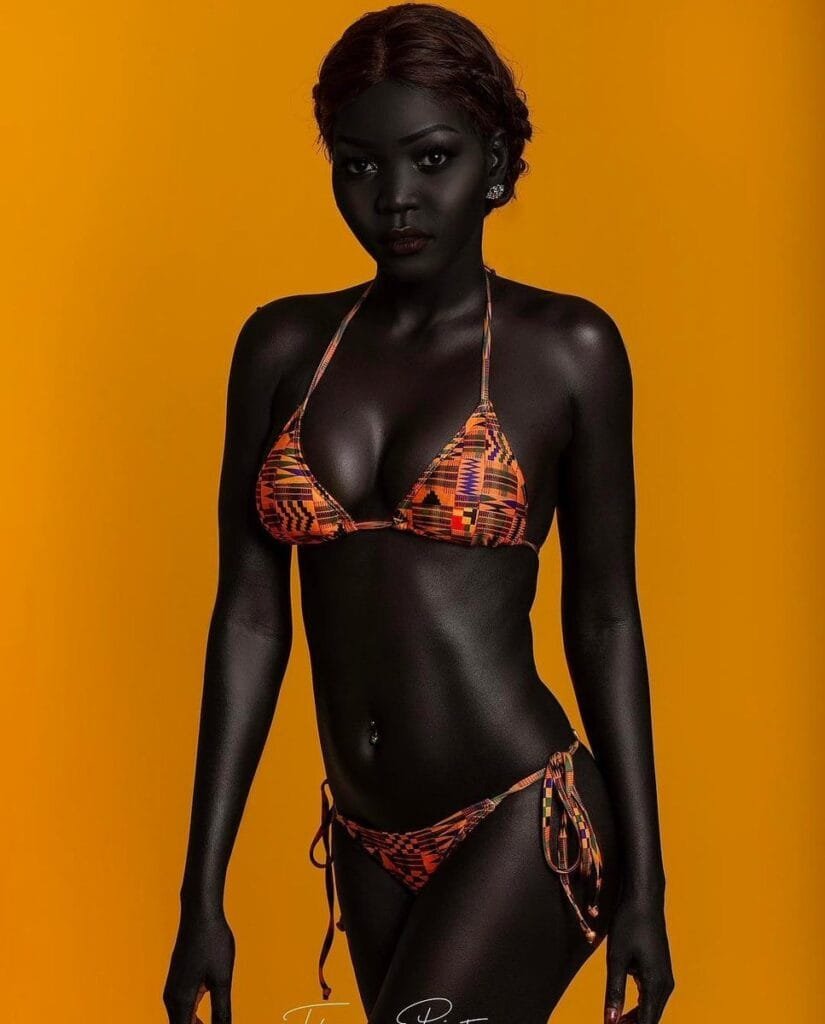
When discussing the blackest woman in the world, the name Nyakim Gatwech often comes up. Originally from Ethiopia but with South Sudanese roots, Nyakim has earned international recognition for her striking, deeply pigmented skin. Often referred to as the “Queen of Dark,” Nyakim has used her platform as a model to promote self-love, body positivity, and the beauty of dark skin.
Despite widespread rumours, Nyakim does not officially hold the title of the darkest woman in the world, as there is no recognized record for this distinction. However, her advocacy and unapologetic embrace of her dark complexion has made her an important figure in conversations surrounding colourism, particularly in industries that have historically marginalised people with darker skin. Nyakim’s story highlights the importance of representation and the power of challenging beauty standards.
The Darkest People in Africa and Beyond
The Dinka and Nuba People of Sudan
Africa is home to some of the deepest, richest skin tones globally, especially within regions like Sudan, where groups such as the Dinka and Nuba people reside. The Dinka people, known for their tall stature and ebony skin, are recognized for their striking physical features, symbolizing heritage and beauty. Similarly, the Nuba people’s deep complexions are celebrated within their communities as a symbol of ancestral pride and cultural strength.
Melanesians and Negrito Communities
Outside of Africa, some of the world’s darkest skin tones can be found among the Melanesian people of the Pacific Islands and the Negrito communities of Southeast Asia. Melanesians, particularly in countries like Papua New Guinea, are known for rich, dark skin and unique genetic traits, including natural blonde hair among some individuals. Similarly, the Negrito people of the Andaman Islands and the Philippines have maintained dark skin tones, offering insight into early human migrations from Africa.
These populations showcase the incredible adaptability of melanin, which has played a crucial role in protecting against UV radiation in sun-intense regions. Studies show that skin tone diversity is an evolutionary advantage, underscoring humanity’s resilience and diversity.
The Role of Melanin and the Importance of Dark Skin
Melanin is the pigment responsible for skin color, with higher concentrations resulting in darker skin. This pigment offers natural protection from UV rays and contributes to skin resilience. In sun-intense regions like sub-Saharan Africa, people with melanin-rich skin are more naturally shielded from sun damage, an adaptation that highlights the body’s evolutionary wisdom.
The beauty of dark skin extends beyond aesthetics, representing a profound connection to ancestry, resilience, and adaptation. This natural diversity is a testament to human strength and survival, and in many cultures, dark skin is regarded as a mark of beauty, heritage, and pride.
What is Colorism and Why Does It Matter?
Colorism, a term popularized by writer Alice Walker, describes the discrimination individuals face based on skin tone, often favoring lighter skin. This phenomenon affects communities worldwide and often leads to bias against people with darker skin, impacting opportunities, media representation, and societal perceptions.
Understanding colorism’s effects helps in addressing inequalities and supporting inclusivity. Figures like Nyakim Gatwech challenge these biases, showing that beauty standards should evolve to represent all shades. Their advocacy promotes self-acceptance and resilience, encouraging people to celebrate their unique skin tones.
The Impact of Viral Sensations
Viral images of individuals with profoundly dark skin challenge traditional beauty ideals and ignite discussions on diversity. The unnamed African man and figures like Nyakim Gatwech exemplify the power of social media to reshape perceptions, proving that beauty is indeed inclusive and varied.
These viral moments resonate globally, encouraging a more inclusive understanding of beauty. They offer young people role models who embody self-love and pride in one’s heritage, fostering acceptance and admiration for the full spectrum of melanin-rich skin tones.
The Future of Embracing Dark Skin in 2026
In 2026, society’s journey toward embracing all skin tones is ongoing. Increased representation in fashion, media, and popular culture reveals that darker-skinned individuals are both celebrated and appreciated. Challenges like colorism remain, but the growing support for inclusivity shows a positive shift toward recognizing the beauty in all skin tones.
Conclusion
In 2024, the global conversation about individuals celebrated for deep melanin-rich skin tones fosters an appreciation for diversity. Figures like the unidentified African man and Nyakim Gatwech have influenced perceptions, challenging traditional beauty standards and encouraging inclusivity. While there may never be an official title for the “darkest person in the world,” these conversations affirm that every shade of skin carries unique beauty, strength, and history. By embracing these stories, we can create a more inclusive and celebratory future for all.
Frequently Asked Questions
Who is the world’s blackest person?
An unidentified African man whose photo went viral on social media is often considered to have one of the darkest skin tones in the world. His image sparked global conversations about melanin diversity and dark skin beauty. While there is no official world record for the darkest skin tone, this viral photo has become iconic in discussions about celebrating deep melanin-rich complexions.
Who is the blackest woman in the world?
Nyakim Gatwech, a South Sudanese-American model, is widely recognized for having one of the darkest skin tones in the modeling industry. Born in Ethiopia to South Sudanese parents, she’s known as the “Queen of Dark” and has become an international advocate for dark skin representation, using her platform to combat colorism and promote self-love.
Who is the darkest race in the world?
Race is a social construct, and skin tone varies widely within all populations. However, some of the darkest natural skin tones are found among the Dinka and Nuba people of Sudan, Melanesians in the Pacific Islands, and certain communities in South Sudan and West Africa. Darker skin evolved as natural protection against UV radiation in sun-intense equatorial regions.
Where can I find the blackest man in the world on Instagram?
While the viral unidentified African man doesn’t have a known Instagram account, you can follow advocates for dark skin beauty like Nyakim Gatwech (@queennyakimofficial) who celebrates melanin-rich skin tones. Many South Sudanese models and influencers share content celebrating deep skin tones on Instagram using hashtags like #melanin, #darkskinbeauty, and #blackisbeautiful.
Is there a top 10 list of the blackest men in the world?
There is no official ranking or top 10 list of the blackest men in the world, as skin tone measurements aren’t formally recorded. However, individuals from South Sudan, particularly from the Dinka and Nuer ethnic groups, are often noted for having some of the darkest natural skin tones globally. The viral image of the unidentified African man remains the most recognized example.
Where can I see pictures of the blackest person in the world?
The most widely circulated picture is of an unidentified African man whose photo went viral across social media platforms. You can also find images of Nyakim Gatwech, the South Sudanese model celebrated for her deep skin tone. These images are available through Google Images, Instagram, and various news articles discussing melanin diversity and dark skin beauty.
What is “The Blackest Man in the World” parody/meme about?
The viral photo of the unidentified African man has been used in various internet memes and parody content, some celebratory and others problematic. While some memes celebrate dark skin beauty and melanin pride, others have been criticized for trivializing or making light of skin tone discussions. The original image should be viewed as a celebration of natural beauty and diversity rather than comedic content.
Are there videos about the blackest man in the world on YouTube?
Yes, numerous YouTube videos discuss the viral photo of the blackest man in the world, featuring commentary on melanin, skin tone diversity, and the science behind dark skin. Many creators have made reaction videos, documentaries about Sudanese beauty, and educational content about melanin production. Search “blackest man in the world” or “darkest skin tone” on YouTube to find these videos.
Who is the most famous black man on Earth?
This varies by region and generation, but globally recognized Black men include Barack Obama (44th U.S. President), Nelson Mandela (anti-apartheid revolutionary), Muhammad Ali (boxing legend), Michael Jordan (basketball icon), Denzel Washington (acclaimed actor), and contemporary figures like LeBron James, Will Smith, and Usain Bolt. In entertainment, artists like Jay-Z and Kendrick Lamar have massive global influence.
Who is the most handsome Black guy?
Beauty is subjective and varies by cultural standards, but frequently mentioned Black male celebrities include Michael B. Jordan (often tops “most handsome” lists), Idris Elba (People’s Sexiest Man Alive 2018), Trevante Rhodes, Aldis Hodge, Damson Idris, and Broderick Hunter. Different cultures and individuals have varying beauty standards, making this a matter of personal preference.
Who is the hottest black celebrity?
“Hottest” is subjective and varies by personal taste. Popular choices include Michael B. Jordan, Idris Elba, Zendaya, Megan Thee Stallion, Lupita Nyong’o, Halle Bailey, Jonathan Majors, Issa Rae, and Aldis Hodge. These rankings frequently appear in entertainment magazines, but attraction is deeply personal and culturally influenced.
Who is the richest black actor?
Tyler Perry is the richest Black actor with a net worth exceeding $1 billion. His wealth comes from Tyler Perry Studios (a 330-acre lot in Atlanta), the Madea film franchise, TV production deals, and real estate investments. Other wealthy Black actors include Will Smith ($350M+), Denzel Washington ($280M+), Samuel L. Jackson ($250M+), Morgan Freeman ($250M+), and Eddie Murphy ($200M+).
Who is the richest black girl?
Rihanna (Robyn Fenty) is the richest Black woman with a net worth of approximately $1.4 billion as of 2025, primarily from her Fenty Beauty cosmetics line and Savage X Fenty lingerie brand. Oprah Winfrey follows with around $2.5 billion from her media empire. Other wealthy Black women include Beyoncé (estimated $800M+), Kim Kardashian (who is biracial, $1.7B+), and businesswoman Sheila Johnson ($780M+).
Who is the richest black king?
King Mohammed VI of Morocco is often cited as the wealthiest Black/African monarch with an estimated net worth of $5.7 billion+, derived from investments in banking, mining, and telecommunications. King Mswati III of Eswatini (Swaziland) has an estimated net worth of $200M+, and Oba Obateru Akinrutan of Nigeria (Ugbo Kingdom) is worth approximately $300M+ from oil industry investments. However, many African traditional rulers’ wealth is difficult to verify publicly.
Who is the richest black man in Britain?
Sir Lewis Hamilton, the Formula 1 racing champion, is one of the richest Black men in Britain with an estimated net worth of $285 million as of 2025. Other wealthy Black Britons include Stormzy (grime artist and entrepreneur, $30M+), Idris Elba (actor and producer, $40M+), and businessman Michael Ade-Ojo (founder of Cornerstone Insurance, wealth estimated in hundreds of millions). British-Ghanaian property developer Nabil Fekri is also among the wealthiest.






